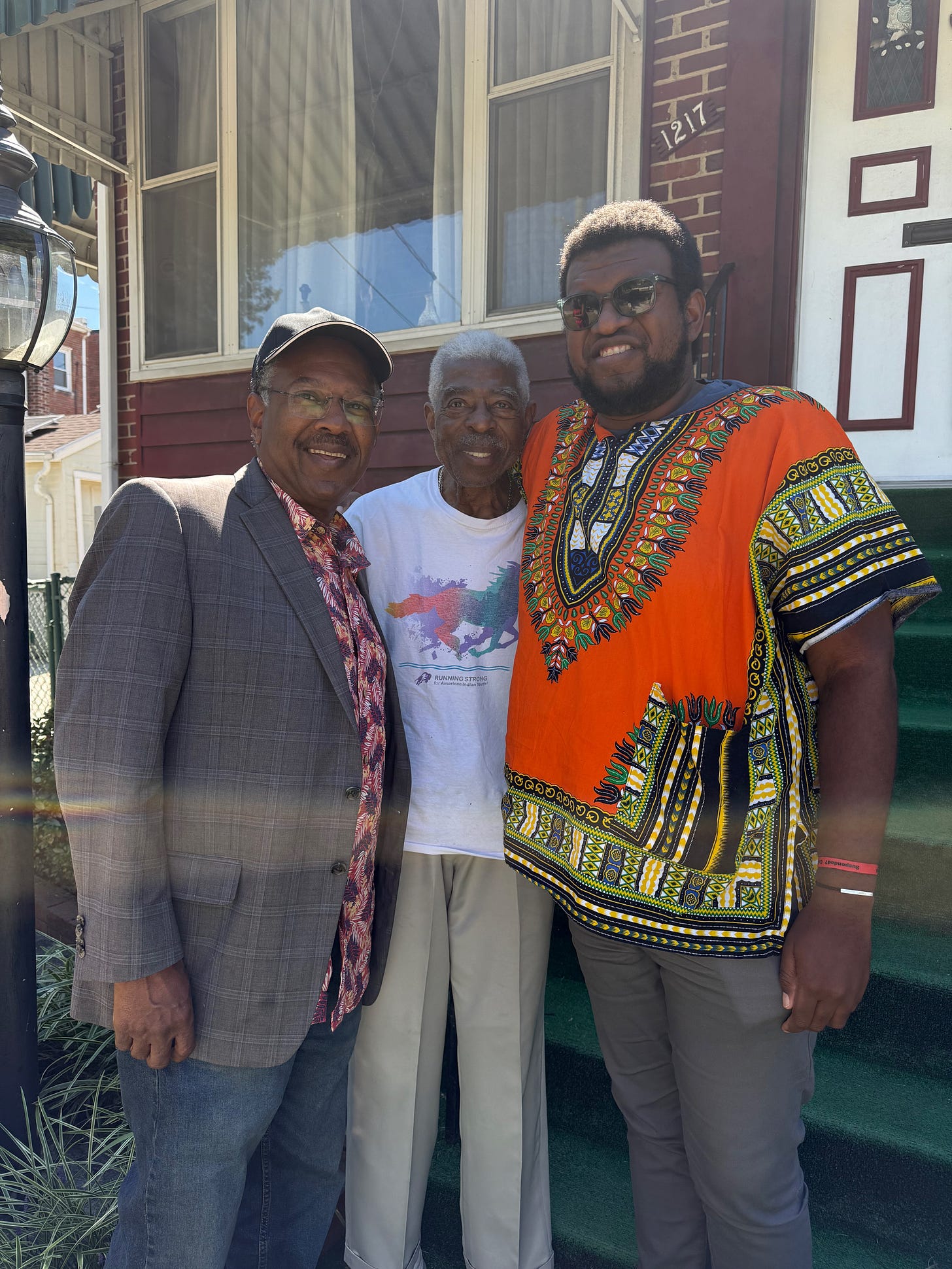Remembrances
The journey of documenting twenty-first century Black American life continues.
Last month, I pulled a rental van into a parking spot right across from a stately home in Washington, DC. My parents, sister, and niece marveled at my navigation of the capital city. We enjoyed a nice brunch at Busboys & Poets, and then I guided us to the home of the Sumlins - taking in the familiarity of the journey on a steady Saturday in August.
In a previous piece, by virtue of its dedication, I nodded to the significance of the Sumlins in my life. I met them in 2009, right before I enrolled as a freshman at Howard. My father’s divinity school classmate, the senior pastor of a historic Baptist church in DC, connected them with me. As I joined the congregation under watch care, at the senior pastor’s direction, they would keep a particular eye out for me. Recognizing the solemnity of their calling, I felt anxious to meet them. When I shook her hand for the first time, I messed up her surname somehow. She flashed that unmistakable grin of hers at me, and I knew that one of my people was standing before me.
Soon after, I settled on Howard’s campus and began my classes. I attended Mt. Moriah from week to week, growing acclimated to the city with each passing day. However, about a month into my time at Howard, I applied for membership in a social club. It seemed to be another way to deepen connections, so I moved forward with my onboarding. The process quickly devolved into an intense hazing experience, filled with sleep deprivation, untenable monetary obligations, and physical abuse. I grew overwhelmed just six weeks into my time on the campus; I desired authentic ways of relating to these men, but the cost swiftly grew too large.
On a cool day in October, a couple weeks later, my mother finally got me on the phone.
“Where have you been?” she asked.
I could no longer hide the effects of not sleeping, feeling disconnected, and abandoning my academic journey. We brainstormed what I needed to do to remove myself from the draining environment. A plan came to fruition, and one component included informing the Sumlins before hopping on a plane to Oklahoma. I let Mrs. Sumlin know, though I can’t recall to what detail, and she soon rolled up to the campus to take me to her home. I rested well for the first time in three weeks before I flew to Oklahoma City the next day.
Everything eventually worked out as it was destined; I never forgot that tangible demonstration of generosity and solidarity. Accordingly, I went deeper in my relationship with the Sumlins. They cared for me deeply during my time at Howard, taking me to dinner after church, buying me groceries, conversing with me about life. I felt my faith grow through such incomparable relationships.
Well, the decades passed. I moved to Louisiana, then to DC, then to Texas. They grew older. Toward the end of my second tour in DC, I learned that Mrs. Sumlin has dementia. I stayed in touch as I left, though the pandemic complicated my frequency of outreach. Mr. Sumlin never failed to return my call - or call me first - to give me updates on this new reality.
All of his history informed a quiet Saturday in DC two weeks ago. Mr. Sumlin met my niece, who he affectionately calls ‘the boss’ when I refer to her over the phone, and we snapped a few pictures to commemorate the occasion. My favorite, which commences this essay, keeps drawing my attention. In a photo of three Black men - one who’s 90, one who’s 61, and one who’s 34 - centuries of struggle and progress emerge. Through chattel slavery, Jim Crow, discrimination in access to economic opportunities, and generational pain, we persist. In 2025, the Sumlins are still here as nonagenarians. I cherish that gift.
At a socialism conference in New York City this weekend, a comrade offered this quote from Clara Sparks:
“The long memory is the most radical idea in America.”
I thank God for this call of mine to remember, made sharp by being in relationship with people like the Sumlins.


